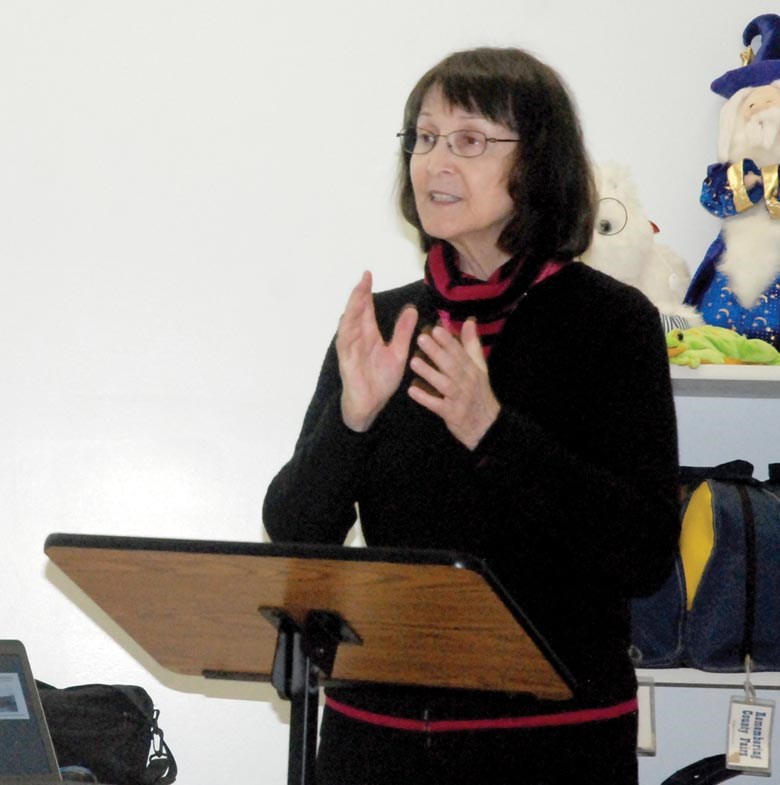by Robin Tarnowetzki
Journal Staff Writer
Saskatoon author Barbara Sapergia came to Humboldt to talk about her new book, Blood and Salt, which centres around the internment of about 8,500 people - most of them Ukrainian-Canadians - during WWI.
The novel is about a young man who is looking for his sweetheart, but soon is captured and put into the Castle Mountain Internment Camp in what is now Banff National Park.
"He finds the four best friends of his life, but also goes through a terrible and difficult time," Sapergia said. "It's just about the prejudiced attitudes we had in Canada and how normal that seemed."
Most people know about the Japanese internment camps of WWII, but Sapergia found that many had no idea that about the men, women and children who were interned during WWI. Castle Mountain was the largest camp, housing hundreds of settlers of Ukrainian, Austrian, Hungarian, and German descent - countries at war with Canada at that time. The prisoners were used for forced labour, especially in national parks, and conditions were harsh.
"It's not even so much that there's a cover up," Sapergia said. "It's just proof that they thought it was all right, that there was nothing wrong with that. But we live in different times and it's time to say, 'Yes, there is something very wrong with it.'"
The Canadian government acknowledged the camps in 2008 when a bill creating the Canadian First World War Internment Recognition Fund was passed. The purpose of the fund is to support projects that commemorate and raise awareness for the communities affected by internment in WWI.
Sapergia's book was published in 2012, but with the 100th anniversary of the beginning of WWI this year, it's been getting more attention again.
She first learned about internment while reading a book in the '70s and mostly forgot about it until she started hearing bits and pieces of the history and decided to weave it into a book. Blood and Salt is the result.
She said she was partially inspired to write it by her childhood in Moose Jaw surrounded by Ukrainian-Canadians, and partially by a visit to Ukraine shortly after its independence. Those experiences were woven into her characters and narrative, and it was important to Sapergia to make more people aware of the internment camps.
"It's our history. My generation never had a hand in doing it, but it's so valuable to understand the evolution of Canada and how it got where it is," she said. "It's a way of examining ideas and being aware that you don't just accept everything that comes along because an important person said it was a good thing. You have to be able to ask your own questions."
Sapergia said she always wanted to be a writer, and has written novels, plays, scripts, and short stories during her career, though she said Blood and Salt was more difficult than most to produce.
"There will be no more books as demanding as this, probably in my lifetime," she said. "I won't have time."




